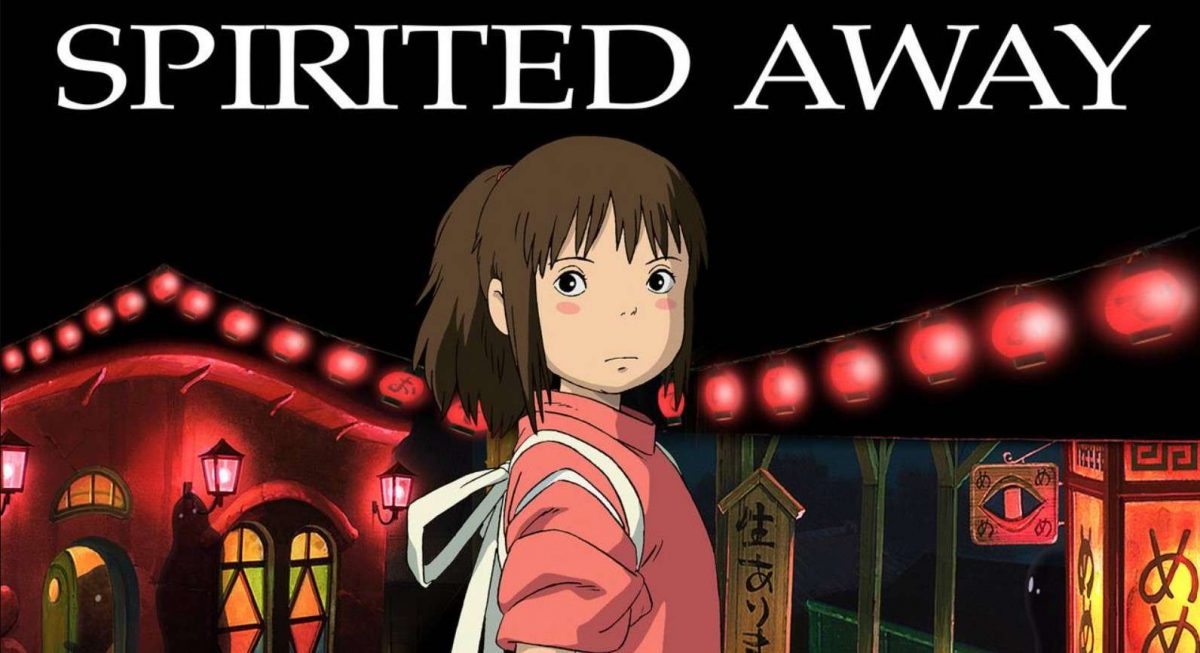
Tasha: Spirited Away also crowds the screen with significant characters in an unusual way. Being a Ghibli hero doesn’t require superheroic deeds, which feels like a message that’s rarely seen, or done well, in a lot of media. She grows as a person to save her family and friends, but she starts out just like anybody else. There’s also the fact that Chihiro is a young girl who is just as bratty as everyone else at that age. Even characters who seem like antagonists, like Yubaba or No-Face, become less scary and more sympathetic once you discover what’s going on with them. Like a lot of other Ghibli films, this film doesn’t have an outright villain. Karen: I think no one thing in Spirited Away can be taken separately from the other parts of the movie, but the characters are definitely a huge part of why it’s so affecting.
#HOW TO WATCH SPIRITED AWAY IN US FULL#
And here, you have a secret love built on mutual need and respect and courage, full of dangerous and frightening confrontations, and culminating in the most joyous reunion in the Ghibli canon. Okay, I just squicked myself out a little, but it’s true that there’s no love so compelling as forbidden love. These are the kinds of big, fraught tropes that got a subset of fans so invested in Reylo shipping, or Twilight. And this one is a particularly fandom-friendly angle: two young people from different worlds, but with a secret emotional connection that makes the heroine willing to repeatedly risk everything. Tasha: That’s a particularly good point - Ghibli movies are almost always centered around big emotions like loneliness or desperation, but since so many of them center on very young protagonists, they don’t always have a romantic angle. It’s all fascinating, and it doesn’t hurt that there’s a love story mixed in with it all, too. And viewers, like Chihiro, simultaneously have to learn the rules of the place and the rules of the spirit world in general. There are so many different kinds of creatures in the bathhouse where Chihiro ends up working. Karen: I also agree with Tasha in that I think it’s the most accessible, and it feels more open because there’s so much to take in. A lot of Japanese folk tales are about not messing with things that aren’t meant for you. They crop up in a lot of Eastern media, too. Karen Han, entertainment reporter: These story tropes aren’t exclusive to Western media, though. If only Chihiro’s parents had read enough fairy tales, they’d know that you never eat the food in the fairy realm!

Magical contracts that bind the soul, the immense power of knowing something’s true name or depriving something of it, time flowing differently in the realm beyond. Susana Polo, comics editor: It’s ironic that Spirited Away has many more obvious hallmarks of Western fantasy stories than the Ghibli films that directly adapt them, like Howl’s Moving Castle, or When Marnie Was There.


And then suddenly she’s deeply immersed in an environment where everything’s new, and inexplicable, and seemingly dangerous. We know from the start that Chihiro is unhappy with her life, and easily intimidated by new things. Not that the studio’s other films are baroque or opaque, but Spirited Away’s opening, with a timid, sulky child thrown into a terrifyingly alien situation, is particularly intense and engaging. Tasha Robinson, film/TV editor: For me, at least, Spirited Away is one of the most instantly accessible Ghibli movies.


 0 kommentar(er)
0 kommentar(er)
